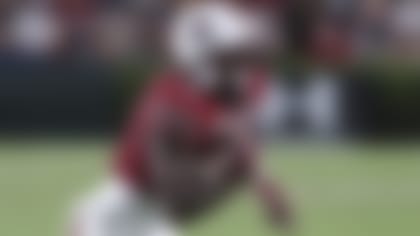As part of our scouting process with the Dallas Cowboys, we always asked college prospects to provide the name of an official from their high school they were close to -- someone we could call to research a player's background. Louisiana Tech's Fred Dean had given us the name Ree Pierce, but when we called his high school's athletic department asking for Ree Pierce, we learned that he was not on the coaching staff. In fact, he was a she… and she was Dean's high school English teacher.
Pierce told us that Dean was the biggest over-achiever she had ever had in her English class. And as it turned out, Dean was an over-achiever on the football field as well.
Dean grew up in Arcadia, La., a small town about 20 miles west of Lousiaana Tech, where Dean went on to become a four-year starter on a team that went 44-4, including four bowl wins, in his four years. Dean was a starter from the time he arrived on campus, playing defensive tackle in a "50" defense -- despite the fact that he never weighed more than 212 pounds.
In the spring of 1974, the Tech coaching staff moved Dean to linebacker -- a move they thought would help him get drafted. After several practices, however, he demanded they move him back to tackle. He hated playing the linebacker position, even if it meant that scouts would consider him too small to play defensive line at the pro level.
I was at Louisiana Tech and saw him in practice one day that spring. They were running one-on-one drills for the linemen -- "nutcracker" drills -- and Dean was lining up against an offensive lineman who outweighed him by 50 pounds. Dean threw the lineman flat on his back, and he didn't get up until the training staff had to come and help. The next guy he lined up against was just as big -- and the drill produced the same result.
Tech head coach Maxie Lambright turned to the NFL scouts in attendance and said, "Okay, seen enough?"
By 1975, scouts for the San Diego Chargers had seen enough of Dean that they made him a second-round draft pick.
And why not? In addition to the strength I had witnessed first-hand, Dean also flashed incredible speed for his size. At the school's Pro Day in the spring of 1974, he ran a 4.48 and 4.49 at 212 pounds, on grass. It was the fastest time among a group of prospects that included three wide receivers (Pat Tilley, Mike Barber, Billy Ryckman) who would go on to play a total of 24 years in the NFL.
Dean had unbelievable quickness. Dallas scrimmaged with San Diego in training camp and played a preseason game against them every summer from 1975-81, and Dean had the quickest first step I've ever seen. I would say he makes Dwight Freeney look slow. A naturally gifted athlete, he also had tremendous body strength even though he never lifted weights.
Still, Dean's NFL career almost ended before it began. The Chargers insisted he play linebacker, so he packed up and left his very first training camp. San Diego dispatched a new member of their front office -- legendary Grambling star Tank Younger -- to convince Dean to return. Younger promised Dean he would at least get a chance to prove he could play defensive line, and Dean agreed to return.
Chargers head coach Tommy Prothro put Dean to the test right away, lining him up in practice against the best offensive linemen on the team -- 290-pound Russell Washington, Doug Wilkerson (260), and Ed Flanagan (260). And it didn't take Prothro long to be convinced Dean could do it.
The rest, as they say, is history. Dean was named All-AFC twice and All-NFC twice during an 11-year career in which he was one of the NFL's most feared pass rushers.
Copyright 2008 by The Associated Press





